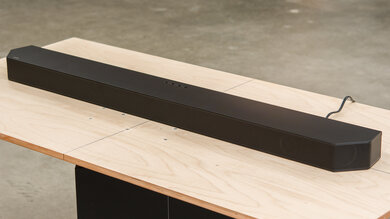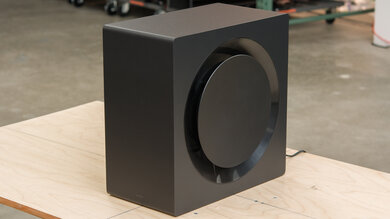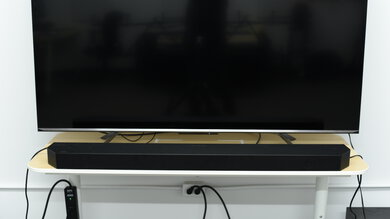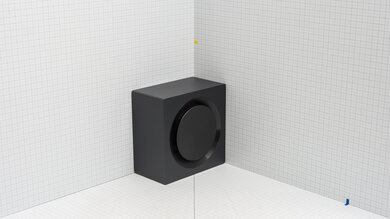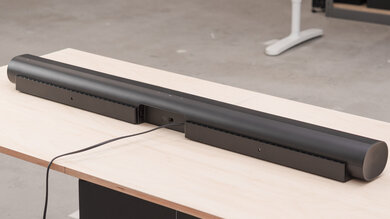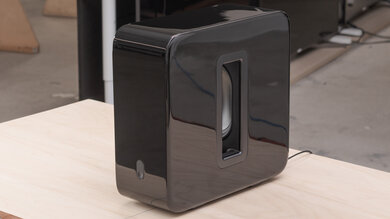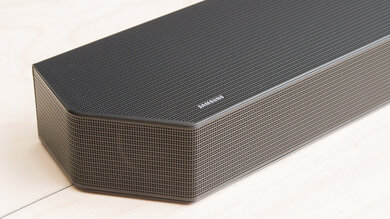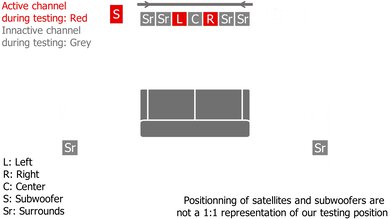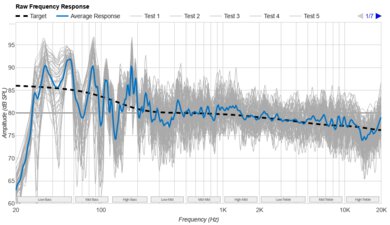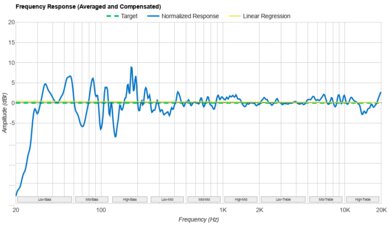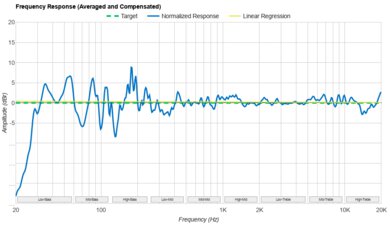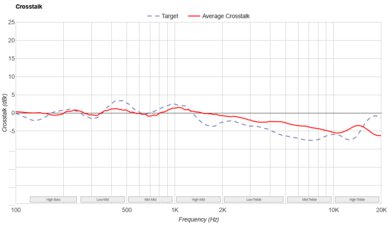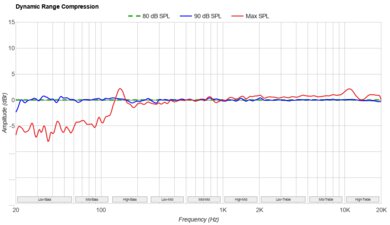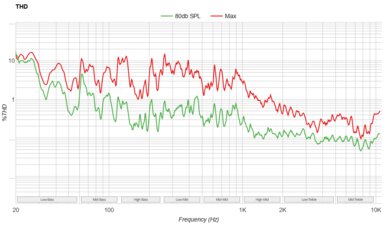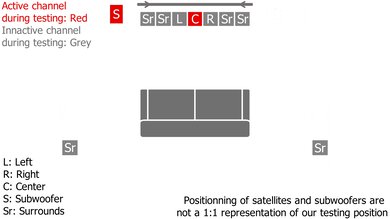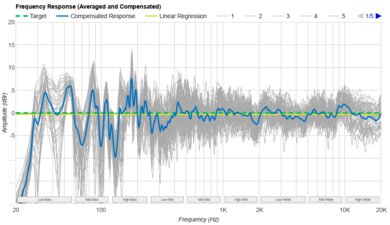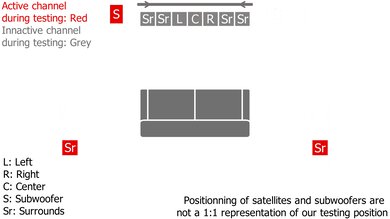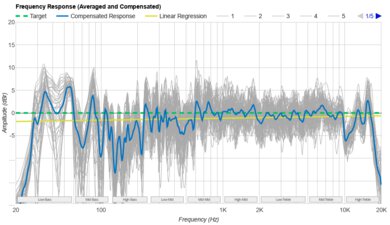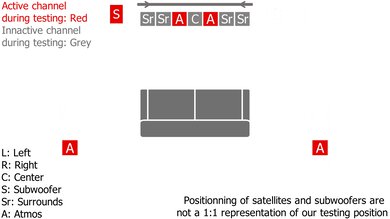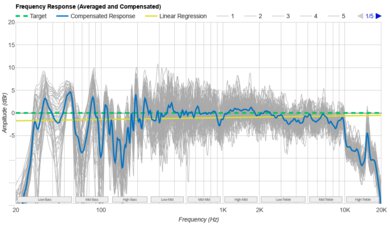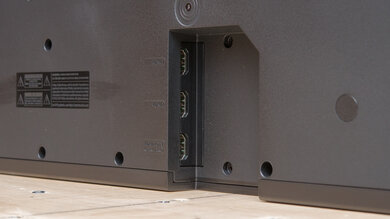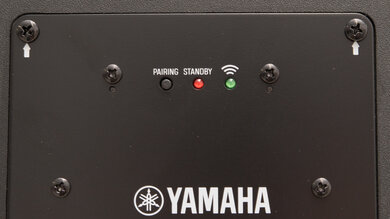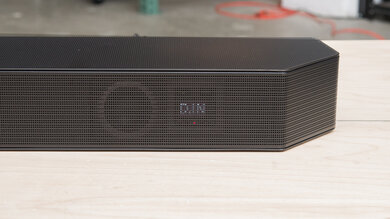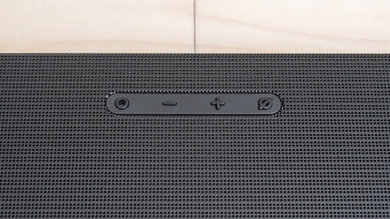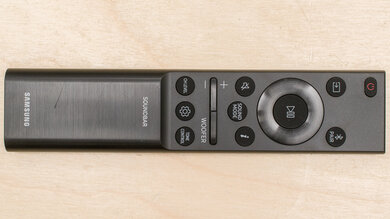The Sony HT-ST5000 is a decent 7.1.2 soundbar setup. It's very well-built and supports virtually all audio format options, including Dolby Atmos. Unlike most multi-channel soundbars, it doesn't come with dedicated surround speakers - all surround and Atmos channels are located directly within the bar. It doesn't have side-firing speakers, either - instead, it applies DSP-enabled virtual surround effects to its front-firing speakers. It sounds fairly well-balanced overall, with lots of thump and rumble, but lacks a bit of detail and clarity. It also tends to compress and distort noticeably at max volume. That said, it has a good stereo soundstage and its Atmos performance isn't bad, especially considering it only has up-firing speakers directly on the bar.
Our Verdict
The Sony HT-ST5000 is decent for mixed usage. It does alright with music, although it tends to compress at higher volumes and lacks a bit of detail. It’s a reasonable choice for watching the news or your favorite TV programs thanks to its dedicated center channel. It’s also satisfactory for movies since it can deliver lots of thump and rumble, but its surround performance isn’t the best.
- 7.1.2 channels in a compact, well-built design.
- Lots of inputs, including eARC support.
- Great amount of deep, rumbling bass.
- Compresses and distorts noticeably at max volume.
- Disappointing surround performance.
- Few sound enhancement features.
The Sony HT-ST5000 is a reasonable choice for dialogue-heavy programs like TV shows. It has a balanced frequency response in the mid-range, which helps with the reproduction of vocals, and a discreet center channel to help dialogue sound more natural. Some might find voices lack a bit detail, but some might prefer this since it can help take the edge off sharper sounds. The standard sound profile is designed to enhance speech for news and TV shows, which could be useful, but we didn't test it.
The Sony HT-ST5000 is alright for music. It packs a lot of thump and rumble, which makes it suitable for bass-heavy genres like hip-hop and EDM. However, some might find it lacks a bit of detail and clarity, which makes it less ideal for classical or jazz. It also tends to compress and distort at higher volumes, which can be noticeable if you're throwing a party and crank it up to max volume. That said, it's okay at regular listening volumes and sounds well-balanced enough to be suitable for casual listening.
The Sony HT-ST5000 is satisfactory for movies. It can help bring out the deep thump and rumble of action films and does alright at making dialogue easy-to-understand. Some might find it lacks a bit of detail and clarity, but this could help it sound smoother, which some may prefer. Its stereo soundstage is good and even the Atmos performance isn't bad. Unfortunately, it tends to compress and distort noticeably at higher volumes, which you might notice if you crank it up during an action-packed scene. However, at normal listening volumes, it shouldn't be too much of an issue.
Changelog
- Updated Feb 26, 2021: Converted to Test Bench 1.0.
- Updated Sep 22, 2020: The Dynamics tests have been reconducted due to a value input bug.
- Updated Mar 11, 2020: Review published.
- Updated Mar 06, 2020: Early access published.
Check Price
Popular Soundbar Comparisons
The Sony HT-ST5000 is a decent Atmos-compatible soundbar that stands out from the competition by providing 7.1.2 channels of audio with just a soundbar and a subwoofer - no dedicated surround or rear speakers. The end result unfortunately doesn't quite live up to what other high-end models with discreet surround speakers can deliver, but it still performs alright overall, and could be worthwhile if you're tight on space but still want a premium experience. See also our recommendations for the best Dolby Atmos soundbars, the best soundbars for movies, and the best soundbars with a subwoofer.
The Sony HT-ST5000 is better than the standalone Sony HT-A7000. The HT-ST5000 comes with a dedicated sub, so it's able to reproduce a more extended low-bass. It also has better Atmos and surround performances. However, the HT-A7000 has more sound enhancement features, such as room correction and Acoustic Center Sync for users with Sony BRAVIA TVs. You can also upgrade this setup with a sub and satellites for better performance.
Depending on your listening habits, you may prefer either the Sony HT-Z9F or the Sony HT-ST5000. The HT-ST5000 can reproduce a more extended low-bass, and it scores better overall. While the Z9F has fewer channels and doesn't get as much bass, it compresses much less at max volume and has fewer issues with distortion. It also has a bit more detail and clarity in the treble range. If bass is what you're after, the ST5000 is the way to go, but the Z9F provides better value otherwise.
Depending on your listening habits, you may prefer either the standalone Sonos Arc or the Sony HT-ST5000. The Sony comes with a dedicated sub that reproduces a more extended low-bass. It's better built and comes with EQ presets and three Full HDMI In ports. However, the Sonos has better soundstage, surround, and Atmos performances. It also comes with a room correction feature, and you can even upgrade it to the Sonos Arc with Sub + One SL Speakers for better performance.
The JBL Bar 9.1 is a bit better for mixed usage than the Sony HT-ST5000. The JBL has a better soundstage, and its discrete surround speakers offer a better surrounds performance. It also gets louder and comes with more wireless playback options as well as a room correction feature. That said, the Sony is better-built, and it's also a better choice for dialogue-centric content thanks to its dialogue enhancement feature.
Test Results


